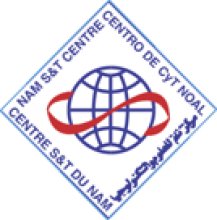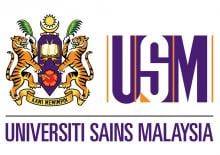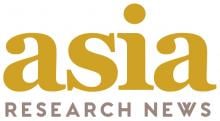Medicine
News

04 Oct 2006
This study aim to investigate the knowledge and attitudes of nursing students in Dar es Salaam regarding HIV infection and AIDS, identifying in the process, areas which need to be changed or emphasized for provision, of better nursing care of HIV–infected and AIDS patients, and with minimal occupational risk of acquiring HIV infection.

03 Oct 2006
International conference on S&T Policy Research and Statistics, International Roundtable on Lessons from Natural Disasters, Policy Issues and Mitigation Strategies, International Roundtable on Lightning Protection, International workshop on Medicinal Plants and Herbal Medicine

01 Oct 2006
The September issue of this international journal from Keio University is now available online.

28 Sep 2006
Dust mites produce an allergen that disrupts the skin’s ability to act as a barrier to other allergens and environmental irritants according to research published this week in the Journal of Investigative Dermatology.

26 Sep 2006
A special focus issue on childhood developmental disorders, including specific language impairment and dyslexia, autism, and the mental retardation syndrome fragile X, is presented in the October issue of Nature Neuroscience. Four articles explore current knowledge about these disorders and suggest avenues for future research.

22 Sep 2006
Heart disease should top the list of women’s health concerns but, according to a Viewpoint article to be published in the October issue of Nature Clinical Practice Cardiovascular Medicine, it doesn’t even come close.

21 Sep 2006
A genetic study to be published in The EMBO Journal could help in the design of better therapies to treat some cases of immunodeficiency and inflammation.

20 Sep 2006
Summaries of newsworthy papers from Nature including Obesity drug development in double bind, Atlantic waters influence El Niño impact, ‘Atomic clock’ gets designer label, Accelerated Greenland ice sheet melting confirmed, Creating a 'shadow person' illusion

10 Sep 2006
A study of patients who became infected with H5N1 in Vietnam reveals clues as to why the avian influenza virus is so virulent, according to research to be published in the October issue of Nature Medicine.

06 Sep 2006
Wearing light solar-powered GPS satellite transmitters, wild swans from Mongolia are winging their way across Eurasia, while land-bound scientists tracking the birds’ journeys on computers say that these unique studies will shed light on how wild birds may be involved in the spread of avian influenza.

05 Sep 2006
Lymphatic filariasis or commonly known as Elephantiasis is a mosquito borne disease which affects more than 100 million people in 80 countries. Researchers from Universiti Sains Malaysia have developed a rapid test to detect the infection.

29 Aug 2006
Susumu Onishi, former president of Elsevier's health sciences division Excerpta Medica, has joined MMC in Tokyo as consultant director to help build the Japan unit under the leadership of Antoine Bocquet, director of MMC in Japan, who also retains his position as Associate Director of Nature Publishing Group (NPG) in the Asia-Pacific region.

25 Aug 2006
HIV in Asia: theological responses and interfaith working, Indonesia introduces the first prison Methadone maintenance treatment in Asia, Youth breaking the ''conspiracy of silence', Explosive epidemic among injecting drug users, New priorities for South Asia, Female condom experiences in Asia and the Pacific, Can Asia learn from Africa?

24 Aug 2006
Seventy top flu scientists and health officials, including six Nobel laureates, today backed a plan to end secrecy over avian flu data: the Global Initiative on Sharing Avian Influenza Data (GISAID).

21 Aug 2006
The benefits of long-term treatment with statins are well established - they lower cholesterol and prevent heart attacks and strokes. Now a novel beneficial action of statins is reported in a study published online this week in the British Journal of Pharmacology.

20 Aug 2006
In Vietnam, there is a saying “Forest is gold”, sadly, this treasury is being illegally looted. Yet, for thousands of years, every group of people have accumulated experiences of using plants as medicines. The knowledge which is not yet recorded in any books, is at the most serious risk of loss.

17 Aug 2006
The main theme of the symposium was “Designing the Future through Sports”, and the sessions focused on issues such as how sports contribute to our society and healthy living, and how we should engage in sporting activities.

16 Aug 2006
The molecular structure of a key avian influenza protein reveals a quirk that could be used to design more potent drugs against pandemic flu; The use of unvaccinated 'sentinel' birds may not always prevent the silent spread of the H5N1 virus through vaccinated flocks

10 Aug 2006
Two developments, expanding the potential applications of high-resolution fluorescence imaging, are published online by Nature Methods this week. Both expand the potential applications of ultrahigh-resolution fluorescence imaging, making it more widely accessible.

08 Aug 2006
This paper gives an overview on the medicinal plants of Vietnam (especially ethnomedicinal plants and medical indigenous knowledge) from the past to present, and their potential value for the development of new medicines in the near future.

02 Aug 2006
Researchers in Australia are developing a non-invasive way of telling how old a whale is, by scooping up the skin flakes it sheds into the sea, according to a News Exclusive in Nature this week. If they succeed, then one of the key arguments in favour of killing whales for scientific research will be dead in the water.

02 Aug 2006
Press release from Nature. Vol.442 No.7102. Summaries of newsworthy papers include Look smart!, Genetic key to finch beak length, Evidence for plate tectonics in the early Earth, Why galaxies don't get to the point, Peering at the pairs, A rose by any other temperature

01 Aug 2006
Based in Hanoi, CREDEP studies the biodiversity, conservation and sustainable use of medicinal plants and indigenous knowledge resources in Vietnam.

30 Jul 2006
Over the last 10 years, the most prominent developments in clinical medicine were the introduction of gene therapy and minimally invasive surgery. Basic scientific progress was so rapid that practical activities, teaching young fellows, clinical training of residents were left behind.

27 Jul 2006
One of the most controversial chemicals on the planet is set to make a comeback as a prime weapon in the fight against malaria in Africa, reports a special News Feature in the August issue of Nature Medicine.

26 Jul 2006
The role of particular neurons in a region of monkeys’ brains known to be important for object recognition is more clearly established by a study appearing online in Nature this week. The research shows that artificially activating these nerve cells biases the monkey’s choices in face categorization tasks.

26 Jul 2006
In an attempt to understand the potential cause of rickets in Bangladesh, SARPV conducted a study of 70 households. The results show that diet, food preparation, sunlight exposure and breastfeeding are all major possibilities

21 Jul 2006
Stenting is the reinforcement of an artery to prevent it from closing following surgery. The study finds that the use of sirolimus-eluting stent (SES) would be a cost-saving option as compared with bare metal stent (BMS) implantation within the context of the Japanese healthcare system.

18 Jul 2006
Infertility is a major problem amongst 10-15% of married couples where the male partner contributes to 30-40% of the cause. Tongkat Ali has long been used as a traditional herbal remedy for the enhancement of male libido.

13 Jul 2006
The latest developments in brain-computer interface technology present a potential way to replace or restore lost motor function in paralysed humans. They are reported in two papers in Nature this week.
Events
Sorry, no events coming up for this topic.
Researchers
Sorry, no researchers coming up for this topic.
Giants in history
Sorry, no researchers coming up for this topic.

